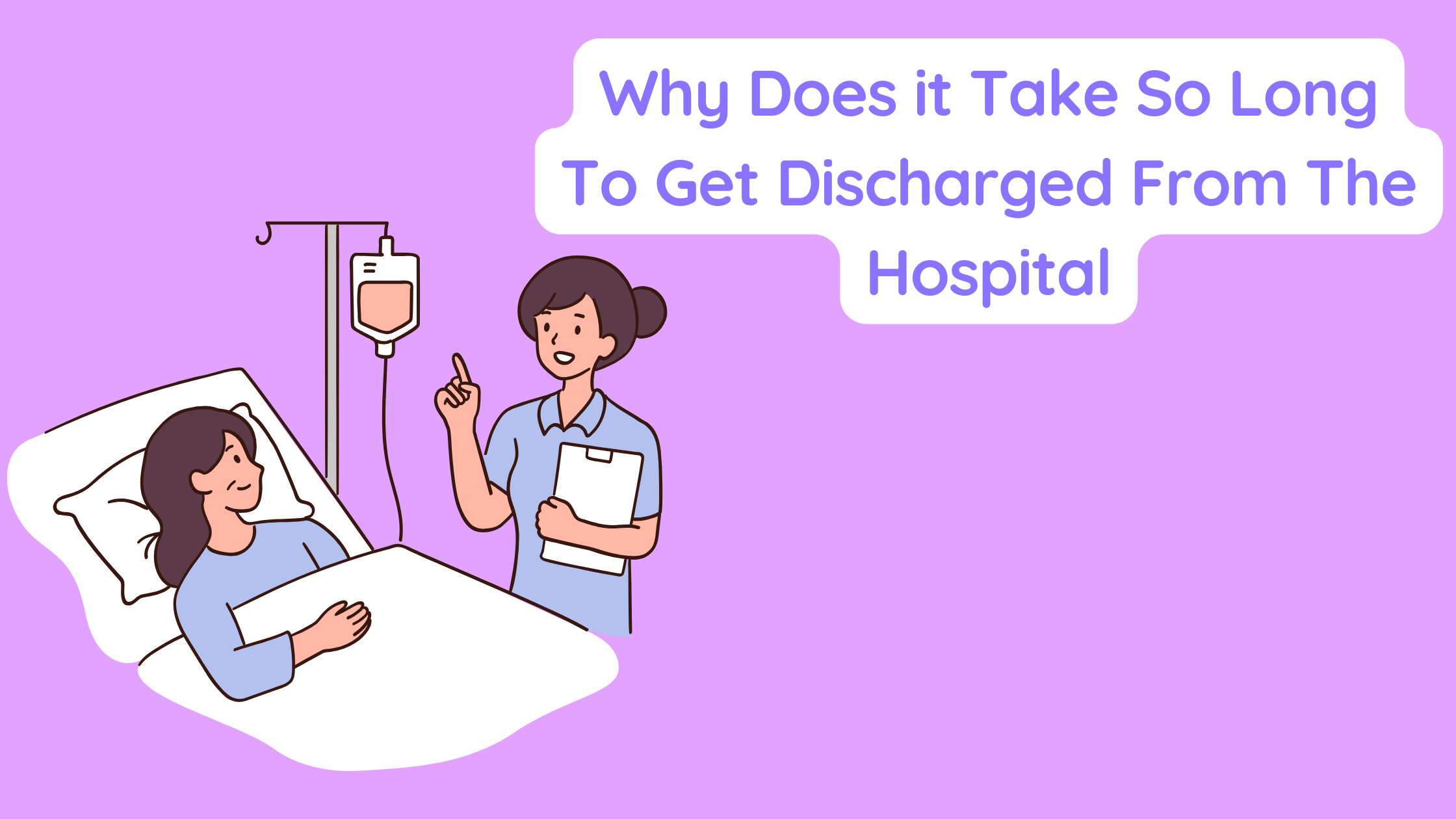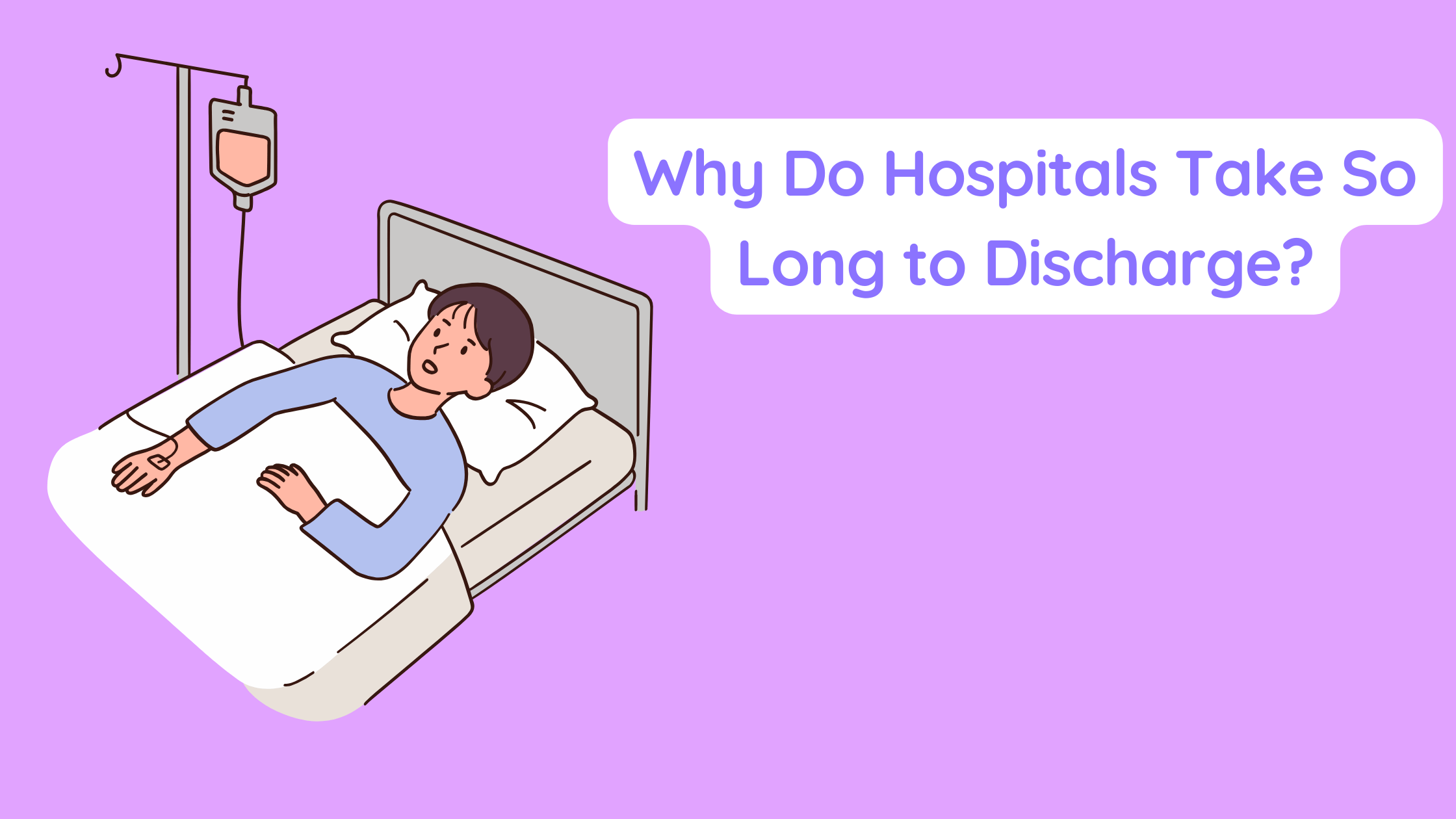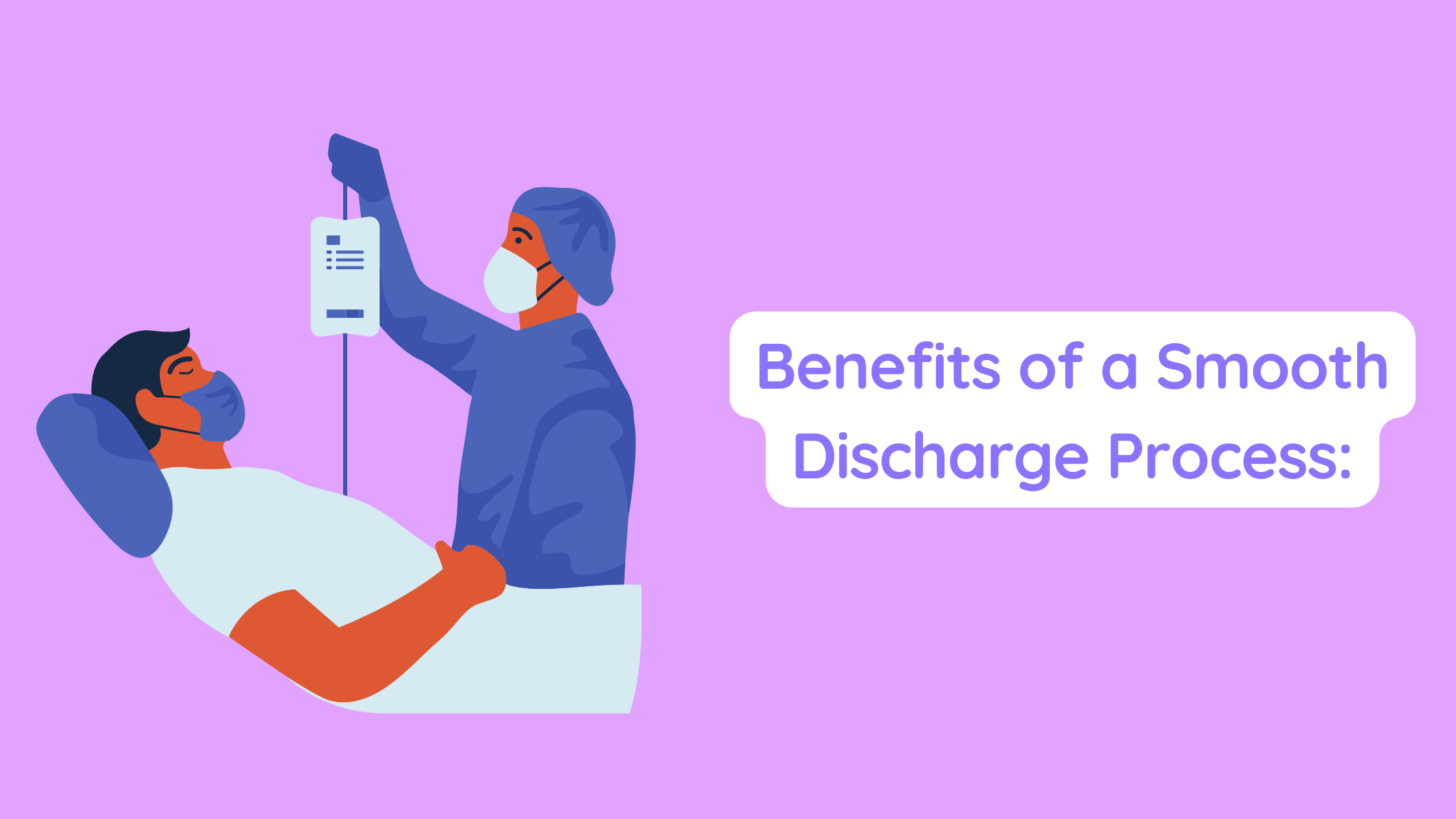
Why Does it Take So Long To Get Discharged From The Hospital
Getting discharged from the hospital can sometimes feel like a never-ending process, leaving patients frustrated and eager to finally go home. But why does it take so long to get discharged from the hospital? One of the main reasons is the extensive coordination needed between different healthcare providers, including doctors, nurses, and social workers. Each member of the healthcare team plays a crucial role in ensuring that patients receive the appropriate care before they leave the hospital.
There are several administrative tasks that need to be completed before discharge can occur. These tasks may include filling out paperwork, and arranging for follow-up appointments or home care services. All these steps require time and attention to detail to ensure that patients are properly cared for after leaving the hospital.
Understanding the Delay in Hospital Discharge?
When it comes to hospital discharge, your health team will engage in a thorough discussion with you before escorting you to the discharge lounge. In general, most individuals can expect to be discharged within a two-hour timeframe; however, if there are more intricate requirements for post-discharge care, this duration may be extended.
Patient safety is of paramount importance when it comes to discharges. Hospitals need to ensure that patients are ready and medically stable enough to continue their recovery at home or in a different healthcare facility. This involves conducting various tests and assessments, reviewing medical records, consulting with other specialists if necessary, and carefully monitoring any changes in the patient’s condition. Although this might contribute to lengthy discharge processes, it ultimately aims at preventing complications or readmissions once patients leave the hospital.
In conclusion, while waiting for discharge from the hospital can be frustrating for patients eagerly anticipating their return home, it is important to understand that various factors contribute to these delays. From coordinating with multiple healthcare providers and completing administrative tasks efficiently to ensuring patient safety through comprehensive assessments – all these steps play an integral part in
Getting discharged from a hospital can sometimes be a lengthy and frustrating process for both patients and their families. In this article, we’ll explore the reasons behind the delays and provide tips on how to expedite the discharge process, ensuring that patients can return home sooner and continue their recovery.
Nurse and ambulance worker strikes are certainly impacting service availability as well. However, the primary reason for discharge delays is the absence of social services, in other words, the discharged patient lacks an alternative destination.
Why Do Hospitals Take So Long to Discharge?

Why Does it Take So Long To Get Discharged
- Medical Evaluation: Hospitals must ensure that patients are medically stable before they are discharged. This often requires a thorough evaluation by the medical team to confirm that the patient’s condition has improved sufficiently to continue recovery at home.
- Coordination of Care: Discharging a patient involves coordinating with various healthcare professionals, including doctors, nurses, therapists, and social workers, to ensure that the patient has the necessary care and resources after leaving the hospital.
- Medication and Documentation: Medication reconciliation is an essential step, ensuring that the patient has the correct medications for post-discharge care. Detailed medical records and discharge summaries must also be prepared for a smooth transition.
- Patient Education: Hospital staff must educate patients and their families about the patient’s condition, medications, self-care, and any necessary follow-up appointments, which takes time to ensure understanding.
- Billing: Obtaining necessary authorizations, and addressing billing issues can be time-consuming, especially if there are discrepancies or delays in approvals.
- Home Care Arrangements: If a patient requires home care services, arrangements must be made, including scheduling caregivers and equipment delivery, which may take time.
- Transportation: Securing transportation for the patient, especially if they are not able to drive themselves, can be challenging, and it may contribute to delays.
Benefits of a Smooth Discharge Process:

Why Does it Take So Long To Get Discharged From The Hospital
- Faster Recovery: A swift discharge process allows patients to recover in the comfort of their homes, which often accelerates the healing process.
- Reduced Risk of Infections: Hospitals are places where patients can be exposed to various infections, so minimizing the hospital stay lowers the risk of healthcare-associated infections.
- Cost Savings: Shorter hospital stays result in reduced healthcare costs, benefiting both patients and healthcare systems.
Tips to Get Discharged Quickly:
- Ask Questions: Keep communication open with the medical team, and don’t hesitate to ask about your discharge plan and expected timelines.
- Be Prepared: Have important documents and information readily available, including insurance details and a list of your current medications.
- Plan Ahead: Coordinate with your family and arrange for transportation in advance to avoid unnecessary delays.
- Follow Medical Advice: Comply with your doctor’s recommendations, including medications and self-care instructions, to speed up your recovery.
- Advocate for Yourself: If you believe you are ready for discharge, communicate your concerns to your healthcare team and advocate for a faster process.
FAQs
1. Why does it take so long to get discharged from the hospital?
Sometimes it take so long to get discharged from the hospital, hospital discharge involves a series of critical steps, including medical evaluation, coordination of care, medication reconciliation, patient education, insurance and billing matters, and arranging post-discharge care. Each of these steps ensures the patient’s safety and well-being.
2. Can I request an earlier discharge if I feel ready to leave the hospital?
Yes, you can express your desire for an earlier discharge to your healthcare team. They will evaluate your condition and consider your request if it aligns with your health and safety.
3. What can I do to speed up the discharge process for myself or a loved one?
To expedite the discharge process, be prepared with necessary documents, ask questions, follow medical advice, coordinate transportation in advance, and clarify insurance and billing details.
4. How can I make sure I understand my post-discharge instructions and medications?
Ask for explanations and clarifications as needed. Make a list of questions and concerns, and don’t hesitate to request additional information from your healthcare providers.
5. What if I need home care services after discharge?
Discuss your home care needs with the medical team. They can help you arrange for caregivers, equipment, and any additional services you may require.
6. What if there are issues with insurance coverage or billing?
Contact the hospital’s billing department to address any concerns or discrepancies. It’s important to resolve these issues before discharge to avoid delays.
7. Is there a risk of healthcare-associated infections in hospitals that can be mitigated by a quicker discharge?
Yes, shorter hospital stays can reduce the risk of healthcare-associated infections, which is one of the benefits of a prompt discharge.
8. Can family members or caregivers be involved in the discharge planning process?
Yes, family members and caregivers can play a vital role in the discharge planning process. They can assist with transportation, provide support at home, and help ensure a smooth transition.
9. What happens if a patient is discharged prematurely and their condition worsens at home?
Discharge decisions are made based on a patient’s medical condition and the judgment of healthcare professionals. Premature discharge can have negative consequences, so it’s important to trust the expertise of the medical team.
10. Can I request a copy of my medical records and discharge summary for my own records?
Yes, you have the right to access your medical records and discharge summary. Request this information from the hospital to have a record of your hospital stay and post-discharge care instructions.
Remember that hospital discharge is a complex process that prioritizes patient safety and well-being. While it may take time, it is intended to ensure that patients are adequately prepared to continue their recovery at home.
Conclusion
The discharge process in hospitals can be time-consuming due to the many necessary steps involved, but it is ultimately in the best interest of patient health and safety. By understanding the reasons for these delays and following the tips provided, patients and their families can help expedite the process and ensure a smoother transition from the hospital to the comfort of their own homes.
Hope you got the idea about “Why does it take so long to get discharged from the hospital?”
Thanks for reading.






